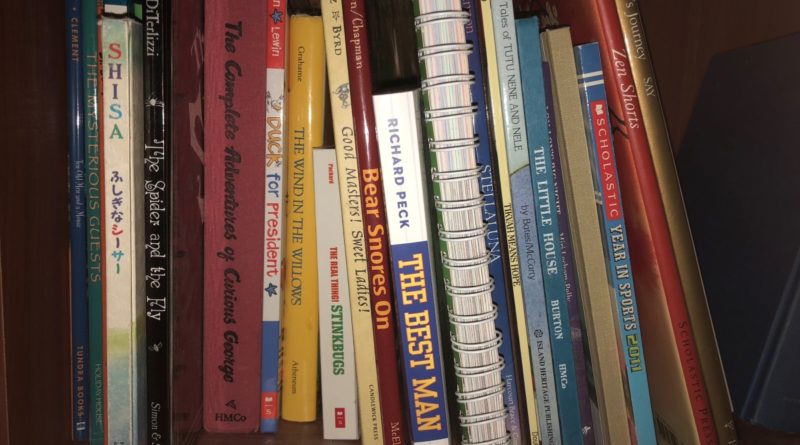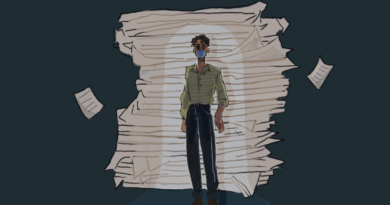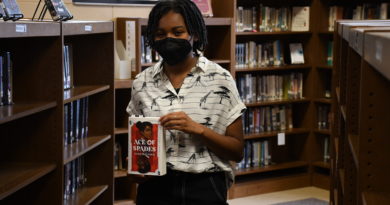Parental Discretion Advised: School Libraries Addressing Complaints
At the beginning of 2018, controversy and anger erupted across the internet and mainstream media as YouTube star Logan Paul posted a video showing a suicide victim hanging from a tree in Japan’s Aokigahara Forest, a site infamous for its high suicide rates, to his 15 million subscribers, many of whom were small children.
Among the obvious anger and frustration towards Paul, much of the conversation shifted to how parents screen and approve the content their children consume, whether that be in the form of YouTube, movies, television shows, or even books.
Locally on March 7, that conversation reached Athens Academy during Avid Bookshop’s book fair for ACAD’s elementary school students. The event was canceled a day early after Avid refused Athens Academy’s condition to review and remove books featuring “objectionable” content, which was interpreted by Avid to mean, “queer.”
In a Facebook post, Avid owner Janet Geddis explained that a parental complaint was made to Athens Academy’s administration about a book featuring gay characters titled The Best Man by Richard Peck, and the book was removed from the fair.
Avid said that they previously they sent books that were approved in advance by Athens Academy’s librarian, including the book in question. Avid’s statement reads, “Our staff is uncomfortable working in an environment that condones this kind of censorship, and so we will not be hosting the final day of the book fair at Athens Academy, as planned.”
The Head of School for Athens Academy, John Thorsen, wrote in a letter to the Athens Academy community, explaining that the book was removed because parents complained, not wishing to educate their children on the concept of gay marriage at such a young age.
“This past Wednesday at an on-site book fair for students aged 3 to 9, several parents raised concerns over a book that contained situations they were not yet prepared to discuss with their young children, and a decision was made to remove the book to a more discreet location. It was never at any time our intention to make anyone feel marginalized by this decision,” said Thorsen.
Nick Wieczorek, a sophomore at Athens Academy, says that he does not think the actions taken by Athens Academy were meant to discriminate against anyone. But, he understands how people could be hurt by the actions taken, especially before Athens Academy’s explanation that they mainly removed the book after learning it was intended for middle schoolers and potentially unsuitable for the fair’s target audience.
“While there has been a misunderstanding that may have left people feeling discriminated against, I hope that this explanation clears the air so that nobody is harmed by it,” said Wieczorek.
He also says that it is in the school’s best interest to listen to the requests of the parents.
“I think if parents pay a large amount of money to send their kids to private school, it’s their right to choose what their kids view or not. The school’s best interests don’t lie in contradicting the parents.
The Best Man was not assigned reading for any classes; it was simply being sold at the book fair. It was entirely optional for parents to purchase the book or determine they don’t want their child reading it.
The book is not secretly gay. On the back cover, Richard Peck writes, “These days I’m trying to get my role models in a row- by seventh grade at the latest. I’ve got Dad, who knows everything there is to know about vintage car restoration and detailing. There’s Grandpa, the great architect who built our school. There’s Uncle Paul, who rules the world from up in the bleachers at Wrigley Field. And there’s Mr. McLeod, National Guardsman and outstanding fifth-grade teacher. These are the four I want to be. So imagine my surprise when two of them plan to get married. To each other. Really.”
The book doesn’t explicitly say, “This book features gay characters,” but it does not hide the fact that it contains same-sex marriage.
At Cedar Shoals High School, guidelines are followed in determining which books are presented and how a parental complaint about a book is addressed.
Mrs. Kerry Hogan, media specialist at Cedar, said, “I follow the guidelines from the American Library Association, and I pick books that are considered, presenting views of all groups. But, since I’m a high school librarian, I’m also bound by the high school rules, which means it has to be young adult appropriate.”
Determining whether or not a book is suitable to be available in Cedar’s library is fairly simple. Online reviews of books are read, and the themes of the book are researched. If a parent disagrees with the judgment made by the library that a book is appropriate to be displayed in Cedar’s library, they simply file a Book Challenge Form.
“We give them the book, and they have to read the book and write down which pages, in particular, they have an objection to,” said Hogan. That challenge is then reviewed by a specialized group from the community.
“After they do that, and they’re asked to read the book in its entirety, and after they do that, they come back and we have a challenge committee, which is made up of a diverse group of teachers and one parent, who’s on our local school governance team, and they are the people who hear the challenge.”
However, that protocol is not always followed, especially when parents are angry over what they see as a problem in their children’s school. For example, one time, a parent went over the school and made a direct complaint to the district board, attempting to have the entire genre of graphic novels removed from the library.
“Once, somebody went straight to the Board to challenge a whole genre, because they believed we shouldn’t have graphic novels. That was highly irregular. You’re not supposed to challenge a whole type of book. We’re hoping you let us know the one thing you have a problem with,” said Hogan. After review, the motion to remove the books was denied.
If a parent complained about a book containing gay characters, the library is obligated to follow the same procedures it would follow with any complaint.
“We would go through the same process. We would listen to them. Everybody would look at the part of the book that they found offensive, and everybody in the group would read it, and we would come back and make a recommendation,” said Hogan.




